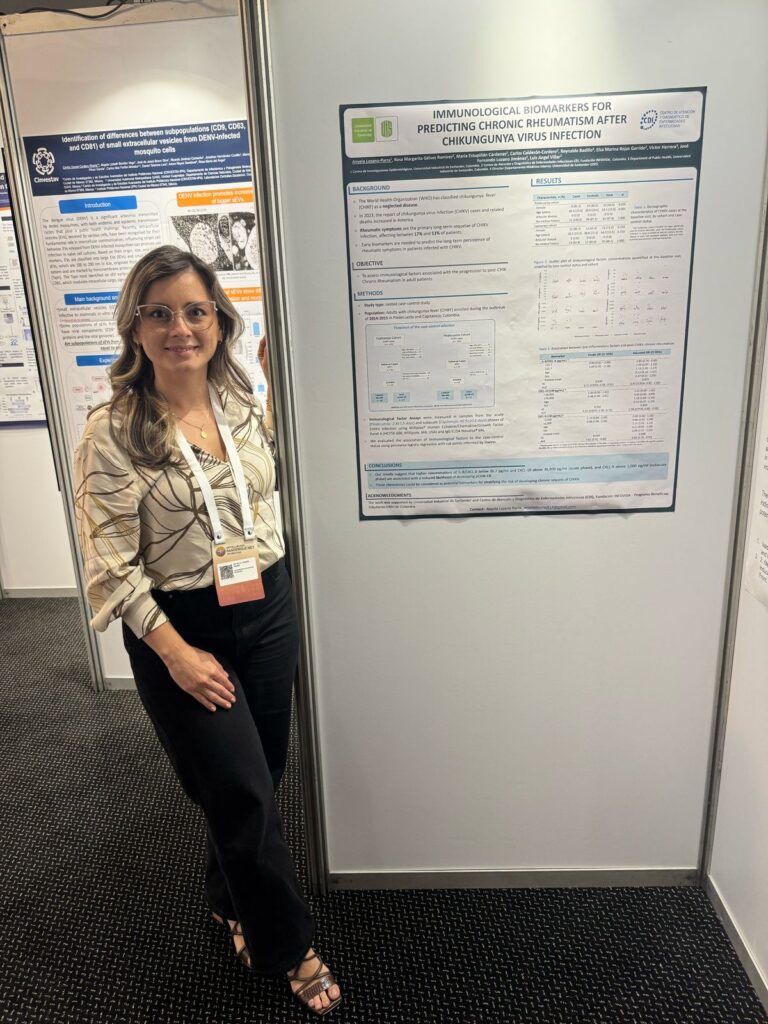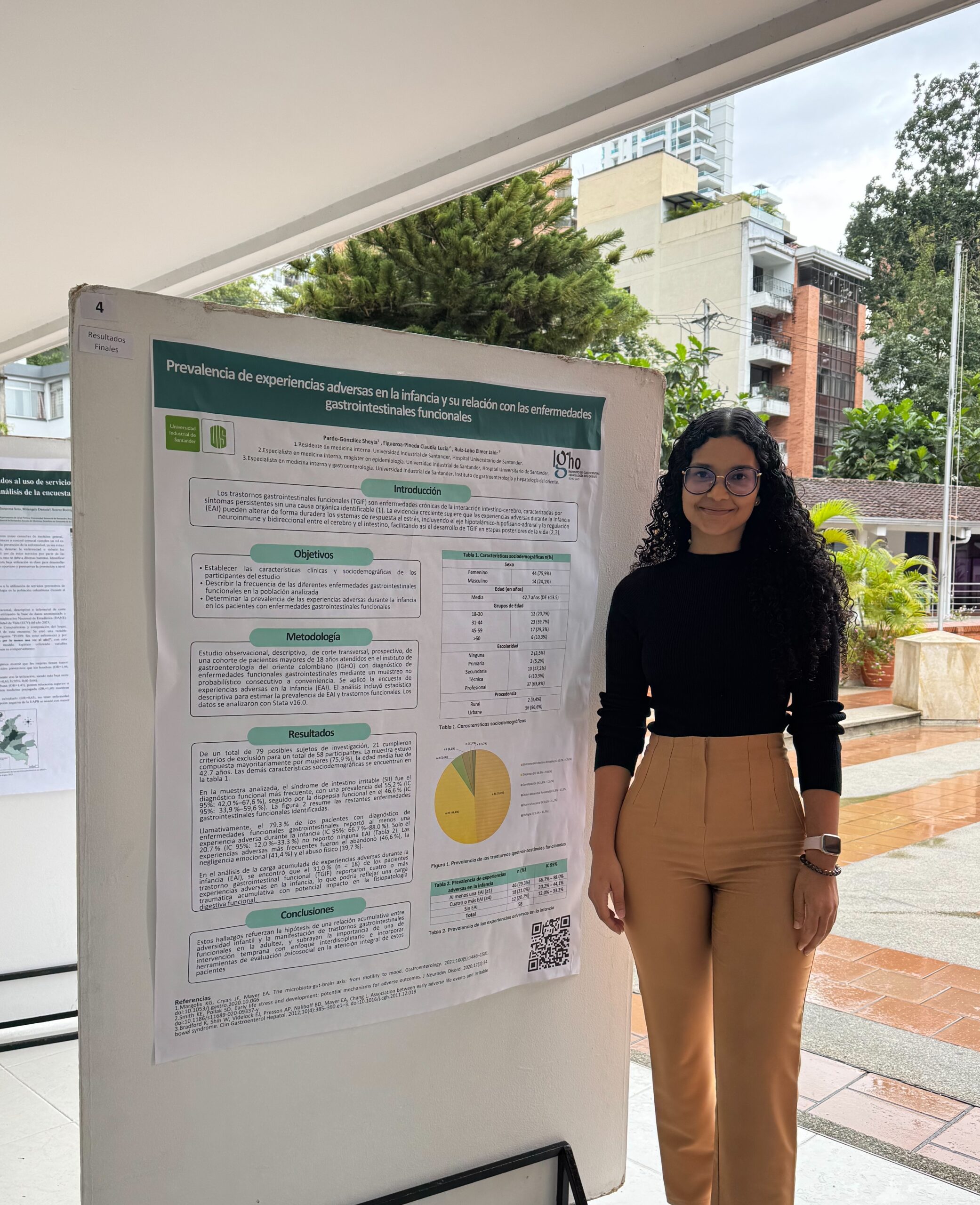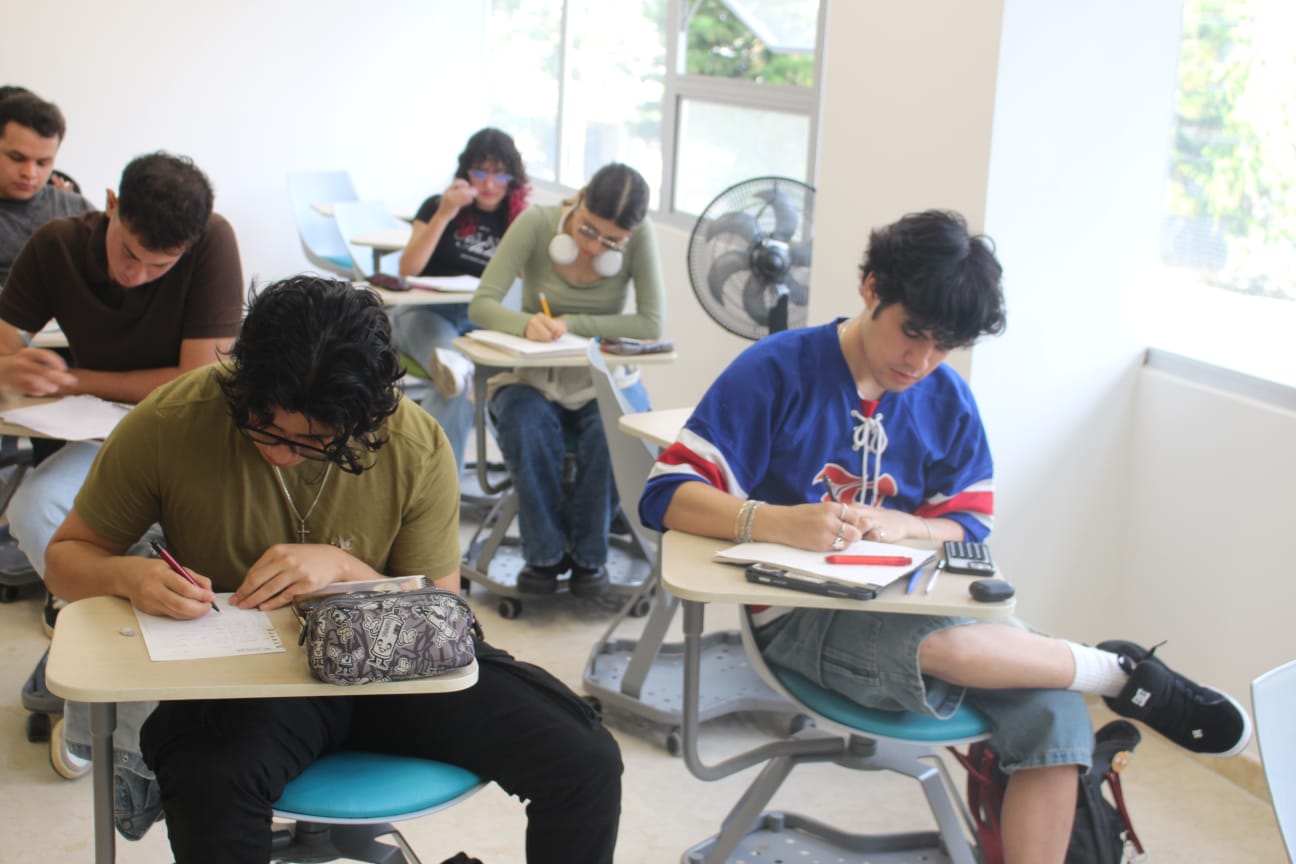
Anyela Lozano Parra, PhD student in Biomedical Sciences, and member of the EPICLIN Clinical Epidemiology Group presented a poster at the VIII Biannual meeting of the Pan-American Dengue Research Network (PanDengue Net), held April 21-24 in Medellin, Colombia.
The poster presented was entitled “Immunological biomarkers to predict chronic rheumatism following infection by the chikungunya virus”. Professor Victor Mauricio Herrera, a member of the Department of Public Health of the School of Medicine, participated in this research as co-author. This work presented the evaluation of immunological markers as possible markers to predict the risk of developing post-chikungunya chronic rheumatism (RC-pCHIK).
“During chikungunya virus (CHIKV) infection, some people develop joint pain that can last for months or even years. We conducted a study to evaluate immunological factors to predict the risk of post-CHIKV chronic rheumatism (RC-pCHIK), in adult patients from two prospective cohorts. We analyzed blood samples taken in the early stages of disease from 80 cases with CHIKV infection. We then compared the levels of certain immune factors between those who developed CR-pCHIK and those who had no joint symptoms after two and seven years of symptom onset,” said researcher Lozano.
These findings suggest that an early and robust immune response may favor control of the virus and decrease the risk of persistent joint symptoms. Given their expression and the timing of their measurement, these three molecules could be promising candidates for early identification of patients at increased risk of chronic rheumatism, although further studies are needed to confirm these results.
This study was supported by the Centro de Atención y Diagnóstico de Enfermedades Infecciosas (CDI), Fundación INFOVIDA, Programa de beneficios tributarios I+D+i de Colombia, MINCIENCIAS (No. 9895-913-93197) and Universidad Industrial de Santander, Programa de apoyo a eventos y pasantías VIE 2025 (No. 4779).





